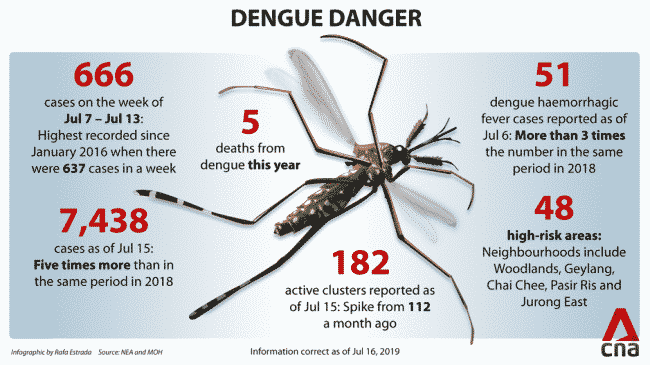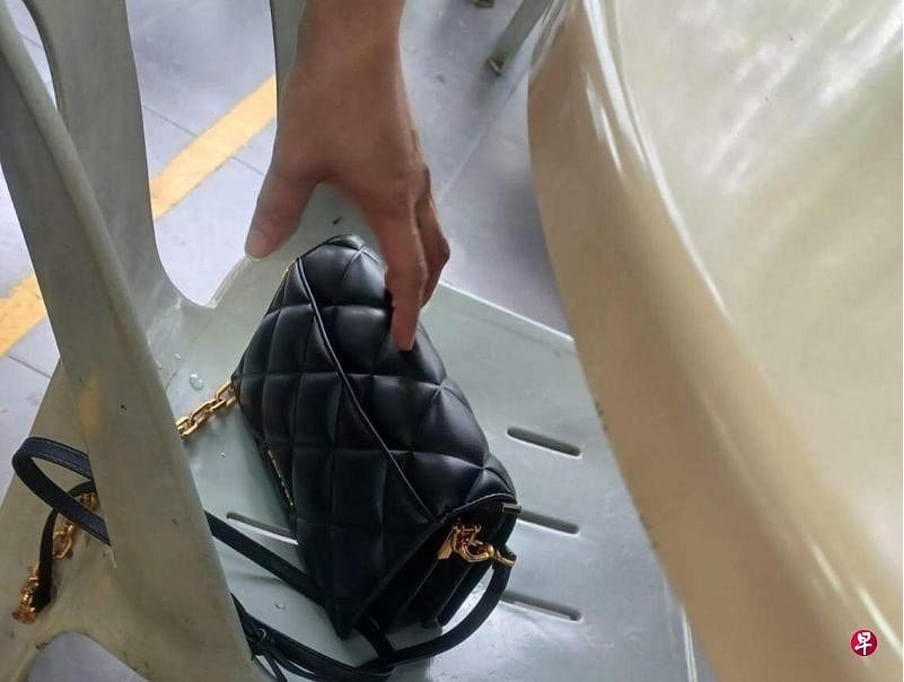
Dengue cases hit a record high last week, spiking to 666 cases in a week – the highest recorded instances in a week was 637 in Jan 2016.
As of 15 Jul, there were 7,438 recorded cases of dengue in Singapore; about five times more than the 1,481 cases in the same period in 2018, the National Environment Agency (NEA) said. Five people have died from dengue this year.
The cause of this year’s spike in cases is undetermined as there is insufficient information. Some experts pointed to the increase in the mosquitoes while others pointed to the mutation of the virus.
Infectious diseases specialist, Dr Leong Hoe Nam, noted that the spike did not come as a surprise as dengue cases typically come in “phases”.
Singaporeans are more vulnerable to the virus as our immunity fall due to the low incidences of dengue in 2017 and 2018, Dr Leong added. The trend is happening in Indonesia, the Philippines, Malaysia and Thailand as well.
A visiting professor at the Lee Kuan Yew School of Public Policy, Professor Tikki Pang, suggested that the spike may be related to the warm weather or the increase in the number of construction sites, hence breeding ground for mosquitos.
He also did not rule out the change in mosquito behaviour or the mutation of the dengue virus strain.
Likewise, Dr Paul Tambyah, infectious diseases expert and president of the Asia Pacific Society of clinical microbiology and infection, could not determine the exact cause of the current spike as well.
“It is not clear if the current spike is due to the spread of a different sub-strain of Dengue-2 or the larger number of Aedes mosquito breeding sites detected.” Dr Tambyah said.
However, Dr Ooi Eng Eong, deputy director at the Emerging Infectious Diseases programme at Duke-NUS Medical School, believes that the evolution of the virus is at work. Being known for mutation, the dengue virus genome could have mutated, allowing the virus to better spread in Singapore’s urban environment.
Whatever the cause is, let us play our part in fighting dengue. Get rid of stagnant water at home by:
1) Changing water in vases and bowls on alternate days.
2) Removing water from flower pot plates on alternate days.
3) Turning over water storage containers.
4) Loosening soil from potted plants to prevent the accumulation of stagnant water on the surface of the hardened soil.
5) Clearing blockages and placing insecticide in roof gutters monthly.
If you’d like to contribute your story to us, drop us an email at editors@sureboh.sg and we’ll review it. We read each submission that comes to us within two weeks of receiving it.





